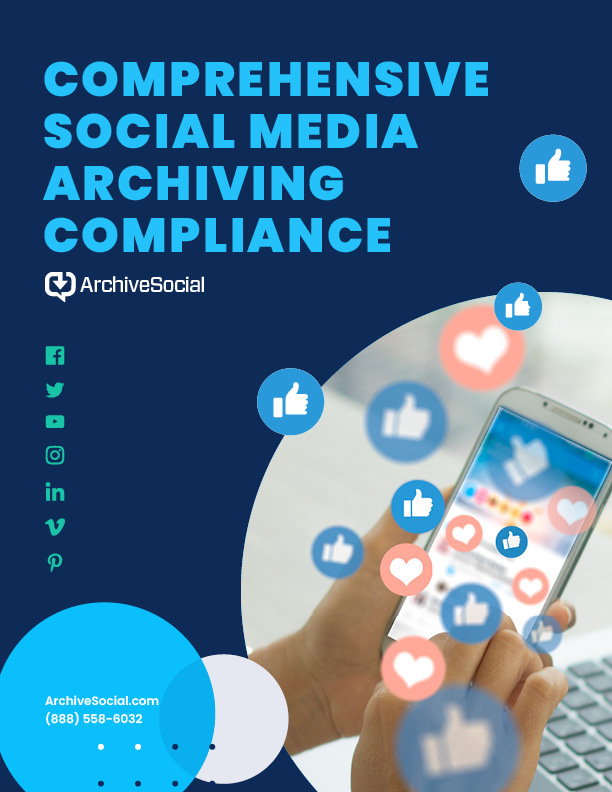Government social media has been making headlines in 2016, but not always in a good way (and no, we’re not talking about the presidential campaign). Many state and local agencies have found themselves embroiled in legal challenges over public records requests, inappropriate comments, and deleted posts.
We’ve rounded up five recent examples from around the nation of government social media challenges that could have been avoided with a plan for archiving in place. See for yourself what can go wrong when social media is used without the basic protections of a policy and an archive in place.
Beech Grove, IN sued for deleted comments
The City of Beech Grove, IN found themselves to be a target of a lawsuit filed by the ACLU after removing comments posted by a citizen on their official social media pages. The citizen is not seeking money, but rather wants the comments reposted — something that is not possible without an archive of those records.
Alamogordo, NM found in violation of state’s public records act
When an Alamogordo, NM resident filed a public records request for a Facebook page made by city’s mayor at the time, the city denied the request claiming it was not a public record. However, a judge ruled the Facebook page was subject to the state’s Inspection of Public Records Act and ordered the city to fulfill the request.
Trenton, NJ PD temporarily suspends Facebook page after records request
A New Jersey man made a public records request claiming that critical comments were removed from the Trenton Police Department’s Facebook page. After the department temporarily deactivated their Facebook account, the citizen won a lawsuit against the city seeking documents about the agency’s social media policies. Trenton also put an archiving solution in place to give the power to enforce their policy in an efficient and legal manner.
Miami Beach, FL mayor sued for blocking users on social media
A Miami Beach resident is suing the city’s mayor claiming that his accounts are subject to the state’s public records act, the Florida Sunshine Law. The citizen says that he and dozens of other users were blocked from the mayor’s official Twitter and Facebook pages after making critical comments. He filed a public records request, which the city denied, and is now suing the mayor to recover the names of everyone blocked from his social media pages, as well as the deleted content. Fortunately, Miami Beach does protect their city social media pages by keeping thorough records through archiving.
Pima County, AZ officials struggle to fulfill records request due to deleted messages
A public records request by a local newspaper found that some Pima County, AZ officials were blocking users, deleting comments, and not retaining conversations on social media. The records request came after the county administrator told elected officials that state records laws apply to social media communications. One official claimed they were unable to retrieve deleted comments because Facebook does not have records management capability and they were not archiving their social data at the time. Pima has since covered their county with archiving.
Don’t let your agency become a headline in 2017!
Despite these potential risks, many government communicators are still not taking basic precautions to protect their agencies. For example, in a survey conducted by the Center for Digital Government, only half of the government agencies using social media had a policy in place.
The best way to protect your agency from these legal risks is to enact a social media policy and maintain an archive your social media activity. Take some time to put these items in place before the end of 2016 so you don’t end up a headline in our 2017 roundup!
For examples of how archiving helps government officials handle social media challenges, view our free resources for public agencies. And if you’re curious about ArchiveSocial’s social media archiving platform, start your free trial today.


